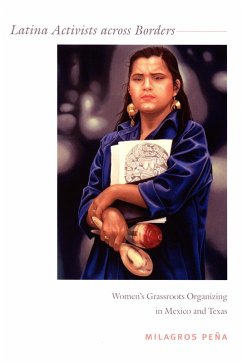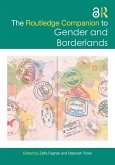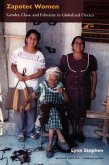Over the past twenty-five years, nongovernment organizations (NGOs) run by women and devoted to advancing women's well-being have proliferated in Mexico and along both sides of the U.S.-Mexico border. In this sociological analysis of grassroots activism, Milagros Pena compares women's NGOs in two regions-the state of Michoacan in central Mexico and the border region encompassing El Paso, Texas, and Ciudad Juarez, Mexico. In both Michoacan and the border region, women have organized to confront a variety of concerns, including domestic violence, the growing number of single women who are heads of households, and exploitive labor conditions. By comparing women's activism in two distinct areas, Pena illuminates their different motivations, alliances, and organizational strategies in relation to local conditions and national and international activist networks.Drawing on interviews with the leaders of more than two dozen women's NGOs in Michoacan and El Paso/Ciudad Juarez, Pena examines the influence of the Roman Catholic Church and liberation theology on Latina activism, and she describes how activist affiliations increasingly cross ethnic, racial, and class lines. Women's NGOs in Michoacan put an enormous amount of energy into preparations for the 1995 United Nations-sponsored World Conference on Women in Beijing, and they developed extensive activist networks as a result. As Pena demonstrates, activists in El Paso/Ciudad Juarez were less interested in the Beijing conference; they were intensely focused on issues related to immigration and to the murders and disappearances of scores of women in Ciudad Juarez. Ultimately, Pena's study highlights the consciousness-raising work done by NGOs run by and for Mexican and Mexican American women: they encourage Latinas to connect their personal lives to the broader political, economic, social, and cultural issues affecting them.
Dieser Download kann aus rechtlichen Gründen nur mit Rechnungsadresse in A, B, BG, CY, CZ, D, DK, EW, E, FIN, F, GR, HR, H, IRL, I, LT, L, LR, M, NL, PL, P, R, S, SLO, SK ausgeliefert werden.









